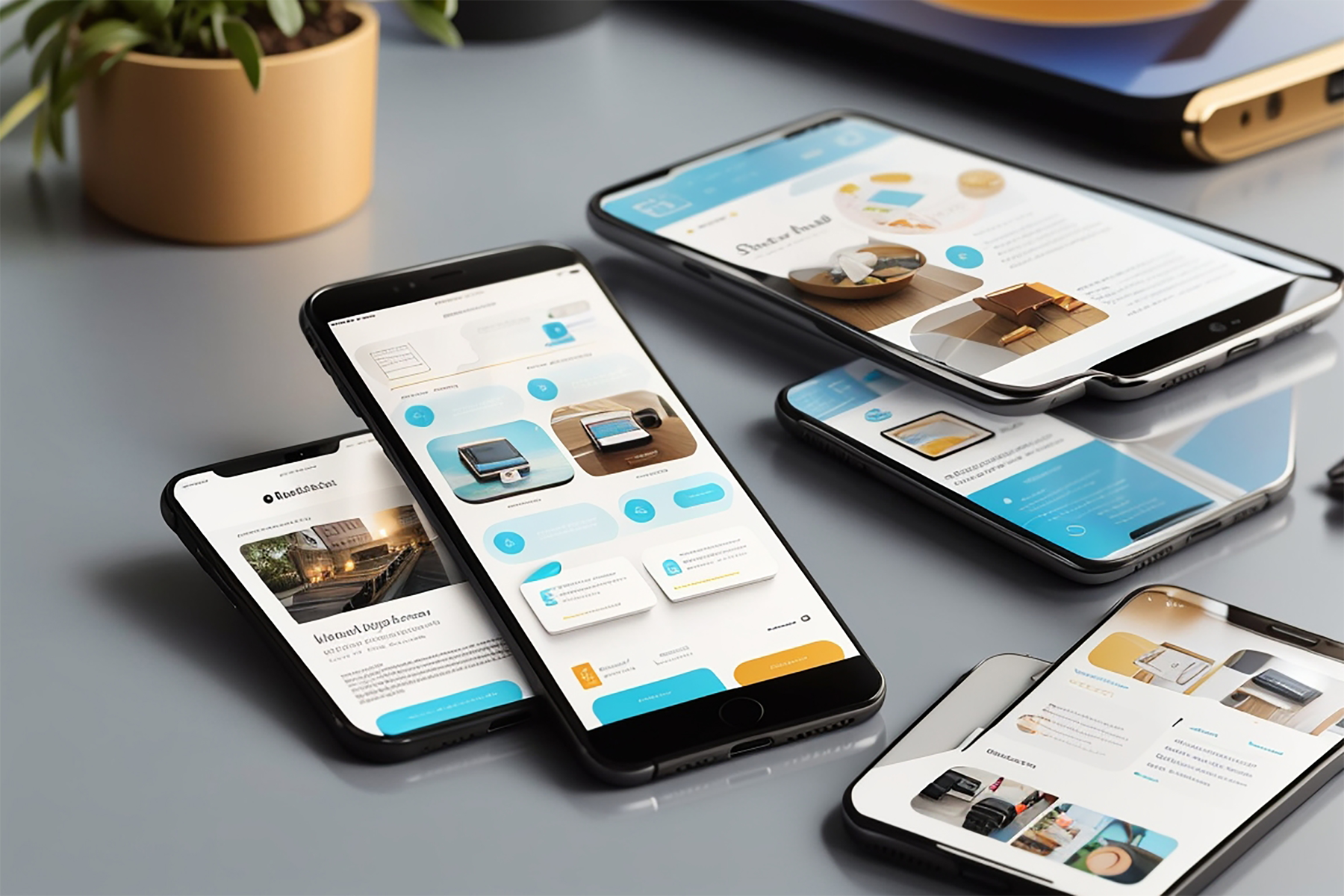In today’s digital world, people expect websites to work smoothly, whether they’re using a desktop, tablet, or smartphone. They want pages that load fast, look great, and are easy to navigate. That’s where responsive design comes in and ensures your website adapts to different screen sizes, providing a seamless experience no matter how people access your site. In this blog, we’ll break down why responsive design is so important and how it can improve user experience, boost SEO, and elevate your brand.
Enhancing User Experience
The first and most obvious benefit of responsive design is the improved user experience. When someone visits your site, they expect it to be easy to use, whether they’re on a desktop at work or browsing on their phone while out and about. Responsive design automatically adjusts your website’s layout, images, and content to fit the screen they’re using. This means text is easy to read, buttons are easy to click, and pages load quickly.
If your site isn’t responsive, users might get frustrated by slow loading times, distorted images, or hard-to-read text. In many cases, they’ll just leave and head to a competitor’s site that works better. A responsive website keeps your visitors engaged, encourages them to explore your content, and reduces bounce rates, leading to better results for your business.

Boosting SEO
Responsive design doesn’t just make your website easier to use, it also helps with search engine optimization (SEO). Google and other search engines prioritize mobile-friendly sites in their rankings. This means if your website is responsive and works well on mobile devices, it’s more likely to rank higher in search results.
Since more people are using their phones to browse the web than ever before, having a mobile-friendly site is crucial for SEO success. A responsive website signals to search engines that your site offers a good user experience on all devices, which can help improve your visibility and bring more visitors to your site. Plus, with just one version of your website (instead of separate mobile and desktop versions), you avoid the issue of duplicate content, simplifying your SEO efforts.
Increasing Reach and Accessibility
As mobile browsing continues to grow, it’s essential that your website works for everyone, no matter what device they’re using. Responsive design makes your site accessible to a wider audience by offering a consistent experience across all devices. Whether someone is using a smartphone, tablet, or desktop, they’ll be able to navigate your site with ease.
If your website isn’t responsive, you risk missing out on a large portion of potential visitors. More people are using mobile devices to browse the internet, and if your site isn’t mobile-friendly, they’ll likely leave and find a site that is. By embracing responsive design, you ensure that your website is accessible to all users, expanding your reach and increasing the chances of turning visitors into customers.
Simplifying Maintenance and Saving Resources
Responsive design also makes it easier to manage your website. In the past, businesses often had to create separate desktop and mobile versions of their sites, which meant more time and effort spent on updates and maintenance. With responsive design, you only need to manage one version of your site, which automatically adapts to different screen sizes.
This saves your team time and resources since you only need to update your content or design once. Whether you’re adding new products, updating your blog, or making design changes, the updates will be reflected across all devices, ensuring a consistent and up-to-date user experience.
Enhancing Your Brand Image
A responsive website doesn’t just improve how your site functions—it also enhances your brand’s image. Today’s consumers expect businesses to keep up with technology and provide a smooth, user-friendly experience. A website that works well on all devices shows that your brand is modern, professional, and focused on delivering value to your customers.
A responsive design reflects positively on your brand by showing that you care about your visitors’ experience. It helps build trust and credibility, as users are more likely to view your brand as reliable and forward-thinking. On the other hand, a site that’s difficult to use on mobile devices can make your brand appear outdated and out of touch.
Additionally, a responsive website helps maintain a consistent brand identity across all platforms. When your visuals, messaging, and overall user experience are consistent across devices, it reinforces your brand’s presence and strengthens your relationship with customers.
The Long-Term Benefits of Responsive Design
Responsive design isn’t just a short-term solution, it’s a long-term investment in your website’s success. By offering a seamless user experience, improving your SEO, increasing your reach, and simplifying maintenance, responsive design sets the foundation for a strong digital presence that can grow with your business.
At Seven52, we specialize in creating responsive, high-performance websites that not only look great but also deliver results. Whether you’re looking to update your current website or build a new one, we’re here to help you create a site that works seamlessly across all devices.
Contact Seven52 today and let us help you create a website that enhances user experience, improves SEO, and strengthens your brand.




